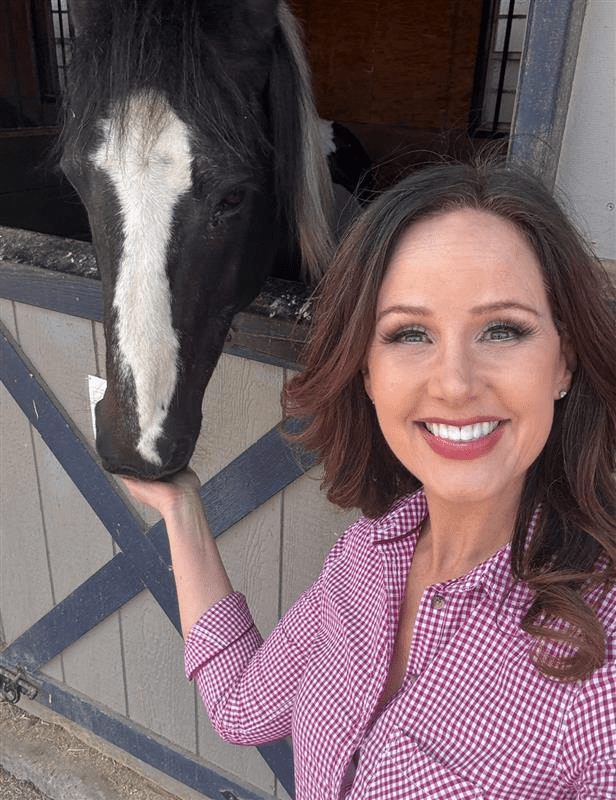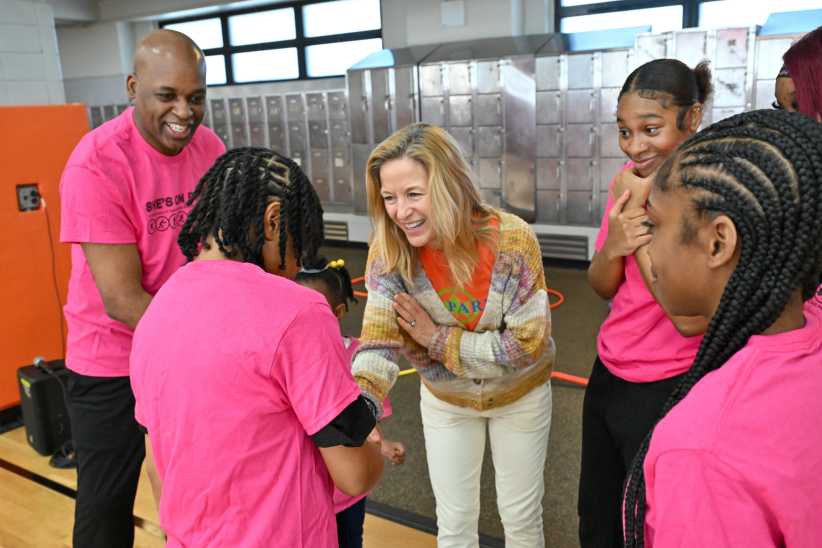Behind the most interesting and vibrant parenting site on the web is a love story. The hero and heroine are Rufus Griscom and Alisa Volkman, two city parents who started dating in September of 2000—when he was the founder of Nerve.com and she was a development and marketing exec in the movie business. As their lives merged, so did their business interests, and Alisa eventually joined Nerve, best known for its thoughtful and provocative writing and photography about sex and relationships—and its popular personals—though over time it has evolved into an indie culture site.
And so have Rufus and Alisa shifted their priorities: they now are married with two young children, Declan and Grey, and in December of 2006, 10 months after Declan was born, they hatched Babble.com. At a glance, Babble has very little in common with Nerve, but the underlying principles are quite similar: be entertaining, be interesting and original, and tell it like it is.
And now parents are babbling about it: in the last year the site has more than tripled its number of visitors, leapfrogging over the million-visitors-a-month mark. Rufus and Alisa, meanwhile, seem to be gaining as much use from Babble as any other parents with young children. Now, if only he would take a more active role in arranging Declan’s play dates…
People create magazines and magazine websites because they think there’s a niche to be filled, or a niche to be filled better. What was the thinking behind the creation of Babble?
Rufus: We had just had a kid, and when we looked at some of the popular parenting sites and magazines, it felt like they featured a lot of pictures of mothers and children helping each other in the kitchen, as if parenting was one great photo opportunity after another. What you didn’t get a sense of was that parenting is really hard, really funny, and really intense. You didn’t get a sense of what a powerful and complicated experience it is. So we wanted to create a fresh voice, one that spoke the truth about the experience, or really the many truths about it.
Alisa: I would add to it that a lot of the material out there just seemed kind of dated, like it was just not interested in connecting with modern parents, parents living in cities, parents where both people are working, or families in which it isn’t just about the mother anymore, families where dads are very involved as well. So I would say that we wanted to tackle the realities of parenting and not the fantasy of parenting.
Rufus: Then, at the outset, one of the things we quickly realized was that, gosh, at this time in culture there seem to be more taboos around the subject of parenting than any other subject, even sex. Taboos like people wanting a child of one sex over another, or people filled with regret about even becoming a parent. Likewise, there’s an insane amount of judging going on. Parenting seems to bring out our most righteous selves, whether the topic is voluntary c-sections, attachment parenting, or whether you work or not. We’ve tried to address a lot of these taboo subjects and feelings by encouraging writers to speak very honestly about their experience of being a parent.
Does Babble feature a lot of stories inspired by your own particular experiences as parents—like do you march into the office every day saying things like, “Potty training is a disaster. Find someone to blog about it!” Or are you just as likely to look at the website as any user would and discover stories or ideas that didn’t come directly from you but are interesting and relevant all the same?
Alisa: Yes to both.
Rufus: We have a phenomenal editor-in-chief, Ada Calhoun, and she, like our other editors, is a parent too, so we’re all constantly having those kinds of experiences. There are small, practical ones, like, We need to buy a new baby bathtub—What’s the best baby bathtub?—Let’s do a Babble list of the best baby bathtubs. But then there are also broader ideas, like when I was reading the book “Stumbling on Happiness” and we ended up doing this chart showing that the happiness of parents, on average, in four different studies declined steeply after the birth of their first child and only rose to its previous heights after the kids went to college. And I thought, Gosh, this is horribly depressing. So we got this wonderful Wall Street Journal writer to interview all the scientists who conducted those studies and dig much deeper into what this meant, and we found a silver lining.
My readers will want to know what the silver lining is.
Rufus: The silver lining is that although average happiness declines, if you look at sort of the moment-to-moment experiences of joy and pain that parents experience after having children, there are times of extreme joy and extreme frustration to a degree they haven’t experienced since childhood or as a teenager. So, in effect, once you become a parent, you’re kind of resubmitting your life to the volatility and intensity that you had experienced as a child or as a teenager. That’s my take on it. I think one of the joys of being a parent is that you’re actually losing some of the control that you had in your life. We get very good at hedging the control in our lives, and then the kids come and we’re back to the rollercoaster.
Babble is already attracting about 1.3 million unique visitors every month. Would you put that in perspective: How do those numbers compare with those of other national parenting sites? And do you feel like you’ve basically accomplished your mission, or is the fun just beginning?
Rufus: We think of it this way: Phase 1 was about establishing our voice, which I think has been accomplished. Phase 2 is going to be about maintaining that voice while also focusing more on service, which is, of course, magazine speak for providing useful tools and information better than anybody else online. We just finished raising extra money so we can do that. Right now, Baby Center is the number one parenting website, attracting about 4 million unique visitors a month. Naturally, we’d like to top that.
Is there going to be a new version of the website?
Alisa: No, you’ll just see some updated design changes and navigation changes as we go along. The most immediate change is going to be that we’re going to organize our content by development, so a parent can come to the site and say, “I’m trying to conceive” and be able to easily find an archive of related content. We’re also going to implement a development tracker, kind of like Baby Center has, so you can track your pregnancy or your child’s development against the norms of any stage.
I don’t think there’s been a story in Babble yet about parents who work together. What’s that like? How do you two make it work?
Rufus: To have a smooth-running company, we both share the view that it’s very important to have clear lines of reporting and responsibility. In the case of Babble, I’m CEO and co-publisher, and Alisa is vice president of sales and co-publisher. How it works is that she oversees sales but also has a lot of input into content development, and I oversee edit but also, as the CEO, am very much involved in important sales and marketing decisions.
Alisa: That’s the formal answer. We also like working together.
Does work stay at work?
Alisa: More or less. But here’s the unexpected dividend: I’ve seen a lot of situations where people have their careers, they work really long, arduous days, they come home, they’re exhausted, and they want to connect with their spouse, but no one wants to talk about their day because they really want to leave that behind. And because of that, many people end up feeling disconnected from their spouse. In our case, when we come home, we don’t need to talk about work. I understand the kind of day he’s had; he understands the kind of day I’ve had. So we can really just enjoy each other’s company and enjoy our children. It’s very nice.
On the home front, are you guys more or less content with your balance of responsibilities, or is that an ongoing process?
Alisa: Yeah, I will say that I think the division of labor is definitely tilted in my column.
Rufus: Way to toss out the hot topic.
Alisa: Yeah, I think that I multitask a lot better than Rufus, which I’m sure most women will not be surprised to learn, given that they probably do it better than their husbands. So while I would enjoy Rufus participating more by setting up some playdates and organizing after-school programs and dealing with the nanny, what happens when he does it is that Declan winds up with one red sock and one blue one, he ends up at the wrong class, and the nanny doesn’t come at the time she was supposed to come. Basically, I have found and accepted that I do these things more quickly and seamlessly, so I guess I have embraced that role. But the minute Rufus walks in, what I do rely on him for, which he’s great at, is being with Declan.
Rufus: But, honeybunch, has it occurred to you that maybe this is a strategy? That maybe I’m intentionally being bad at these things? Sort of like the old strategy of not being a good typist so that you wouldn’t become a secretary. But, no, seriously, I would agree that even though we haven’t so much done this intentionally, we do have a division of labor. Like, I do a bit more of the cooking, and Alisa does more of everything else.
What are your children like? What comes to mind?
Rufus: Declan is a little scientist. He’s obsessed with the sewage system right now.
Alisa: He’s also an unintentional comedian.
Rufus: Declan has this great confidence that reminds me of his mother. The way he learns is that he makes grand pronouncements about the world, like, subways only travel underground, and then he’ll look up at me quizzically to see if that’s true, and then I’ll refine it somehow by saying, Well, except that sometimes subways come out of the ground to go over rivers. And he’s like, yes. And then he repeats it. It’s almost like he’s like a little sort of Dalai Lama-type figure.
Alisa: And when he makes these pronouncements, you really get a sense of what’s going on in his mind. Just yesterday, before I left, I mean out of the blue, he said, “Mommy, I wasn’t very good, but Santa still came.”
So Santa’s reinforcing bad behavior?
Rufus: Apparently.
Alisa: Okay, well, I thought it best to explain to him that, No, you were very well behaved, and I think that’s why Santa came.
And your younger son, Grey?
Alisa: Grey is just a bruiser. He kind of came into this world as a Buddha Baby, was just extremely calm, and asked for very little, but he’s starting to show his feisty side and that he’s not going to take Declan beating up on him too much longer.
Rufus: With both boys, just having a front row seat on the unfurling of a human life is one of the greatest shows on earth. It’s just a great, great privilege to experience that.






















